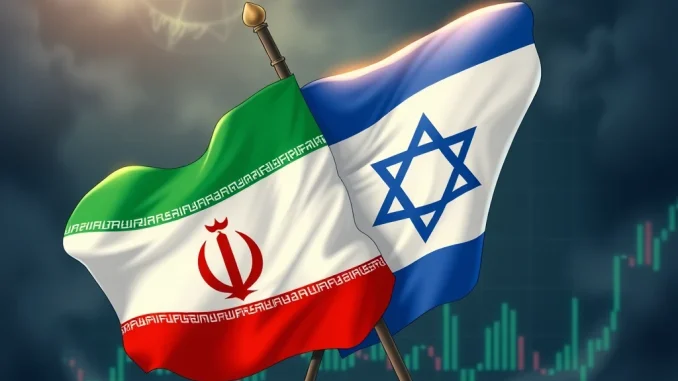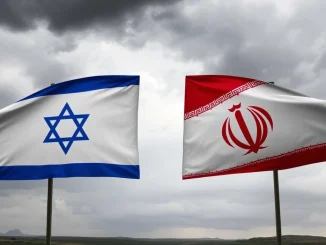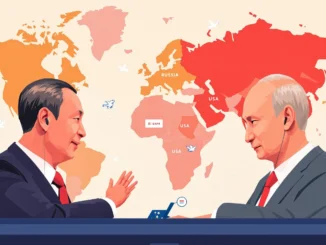
Geopolitical events can send ripples across global financial systems, and the cryptocurrency market is no exception. News emerging from the Middle East regarding the **Iran Israel conflict** is once again highlighting how international tensions can influence investor sentiment and contribute to **market volatility**.
Understanding the Latest **Geopolitical Tension**
According to reports circulating on platforms like X (citing Saudi Arabian news channel Al Hadath via the Walter Bloomberg economic news account), Iran’s Islamic Revolutionary Guard Corps (IRGC) has issued a stark warning. The IRGC stated that its attacks would continue unless Israel ceases its own attacks on Iran.
This declaration underscores the ongoing, volatile relationship between the two nations, which often involves proxy conflicts and direct, albeit limited, exchanges. Such statements from official bodies like the IRGC signal a potential for further escalation in the **Middle East conflict**, a prospect closely watched by analysts worldwide.
How Does This Affect the **Crypto Market Impact**?
While seemingly distant from the world of digital assets, significant **geopolitical tension** events historically correlate with shifts in the crypto landscape. Here’s why:
- Risk-Off Sentiment: Increased global instability often leads investors to move away from perceived riskier assets, including cryptocurrencies, towards traditional safe havens like gold or government bonds.
- Volatility Spike: Uncertainty fuels volatility. News of potential conflict escalation can trigger rapid price movements in Bitcoin, Ethereum, and altcoins as traders react to the evolving situation.
- Narrative Shifts: Events like the **Iran Israel conflict** sometimes reignite discussions about Bitcoin’s role as ‘digital gold’ – a decentralized asset potentially immune to the political and economic instability tied to fiat currencies and traditional markets affected by conflict.
The direct **crypto market impact** is difficult to predict with certainty, as numerous factors influence prices. However, geopolitical developments, especially those involving major regions like the Middle East, add a layer of complexity that investors must consider.
Navigating **Market Volatility** Amidst Conflict
For cryptocurrency holders and traders, periods of increased **geopolitical tension** and subsequent **market volatility** require careful consideration. Key strategies often include:
- Staying informed about global events, not just crypto-specific news.
- Reviewing portfolio allocation based on risk tolerance.
- Avoiding impulsive decisions driven by fear or panic.
- Considering the long-term investment thesis rather than short-term price swings.
While the immediate trigger for this news is the **Iran Israel conflict**, its potential reach extends to global markets, reminding us that the crypto world is increasingly interconnected with broader geopolitical and economic forces.
Conclusion: Staying Aware in a Connected World
The warning from Iran’s IRGC regarding continued attacks unless Israel stops its actions is a significant development in the ongoing **Middle East conflict**. While the direct consequences are primarily regional, the potential for this **geopolitical tension** to influence global markets, including the crypto market, is real. Investors should remain vigilant, understand that such events contribute to **market volatility**, and consider the potential **crypto market impact** as part of their overall strategy in navigating these uncertain times.



